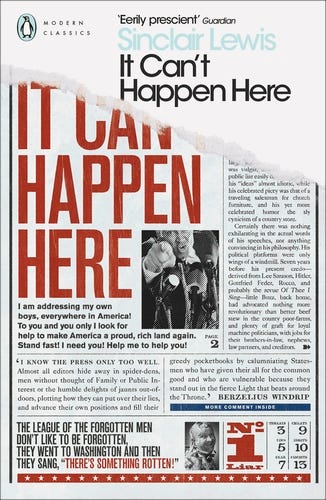"...everything is going to be alright"
Conflict, balance and resolution in law and policy
In his 1992 memoir Fever Pitch, Nick Hornby describes his experience of a crush in a stadium at a 1980 match (before the tragedies later on that decade):
“…there was a forty-thousand-plus crowd.
“Something went wrong – they hadn’t opened enough turnstiles, or the police had made a pig’s ear of controlling the crowd flow, whatever – and there was a huge crush […]
“I could pick both my legs up and remain pinioned and, at one stage, I had to put my arms in the air to give myself just that little bit more room and to stop my fists digging into my chest and stomach. […]
“But the thing was, I trusted the system: I knew that I could not be squashed to death, because that never happened at football matches. The Ibrox thing, well that was different, a freak combination of events; and in any case that was in Scotland during an Old Firm game, and everyone knows that these are especially problematic. No, you see, in England somebody, somewhere, knew what they were doing, and there was this system, which nobody ever explained to us, that prevented accidents of this kind.
“It might seem as though the authorities, the club and the police were pushing their luck on occasions, but that was because we didn’t understand properly how they were organising things. […]
“But I thought about that evening nine years later, on the afternoon of the Hillsborough disaster, and I thought about a lot of other afternoons and evenings too, when it seemed as though there were too many people in the ground, or the crowd had been unevenly distributed. It occurred to me that I could have died that night, and that on a few other occasions I have been much closer to death than I care to think about.
“There was no plan after all; they really had been riding their luck all that time.”
*
You may think:
“….somebody, somewhere, knew what they were doing, and there was this system, which nobody ever explained to us, that prevented accidents of this kind.”
But:
“There was no plan after all; they really had been riding their luck all that time.”
*
At the end of the 1954 novel Lord of the Flies, Ralph is running and frightened, and he falls, and then:
“He staggered to his feet, tensed for more terrors, and looked up at a huge peaked cap. It was a white-topped cap, and above the green shade of the peak was a crown, an anchor, gold foliage. He saw white drill, epaulettes, a revolver, a row of gilt buttons down the front of a uniform.
“A naval officer stood on the sand, looking down at Ralph in wary astonishment.”
Everything is going to be alright.
*
There is a tendency to assume that unpleasant situations will resolve themselves, that problems will have solutions.
This tendency can be associated with certain modes of thought: that a court process will come to an end; that a constitution will regulate political conflict; that a thesis and antithesis will become a new synthesis; that a market will clear and come to an equilibrium.
In an image: the notion of the scales:
Things will balance, eventually.
A naval officer will turn up on the beach.
The police and the stadium authorities will know what they are doing.
Everything will be alright.
*
There is another, related tendency, of those who have not experienced things resolving themselves.
This is the complacent tendency of exceptionalism.
As Hornby avers in the quote above: what could happen at Ibrox would never happen at an English stadium.
“The Ibrox thing, well that was different, a freak combination of events; and in any case that was in Scotland during an Old Firm game, and everyone knows that these are especially problematic.”
A similar sentiment is that what happened in Germany in the mid twentieth century would not happen anywhere else.
“The Nazi thing, well that was different, a freak combination of events; and in any case that was in Germany during the 1930s, and everyone knows that was especially problematic.”
*
*
So one can be tempted to think what is happening in the United States is eventually going to be alright.
That the constitution will resolve the issues, and the mid-terms are on their way.
And in terms of narrative, soon those “on the wrong side of history” will realise they are actually being the baddies and see the error of their ways.
Thesis and and antithesis will become a new synthesis.
There will again be an equilibrium.
Everything will be fine again.
*
The problem is that some conflicts never resolve, at least not without an absolute victory for one side and an absolute defeat for the other(s).
The current culture wars and cruel partisanship may not settle down to an agreed narrative, where one side admits they got it wrong.
The nastiness may continue, without there ever being a naval officer on the beach.
That the police and the stadium authorities really had been riding their luck all this time.
*
Trumpism is not going to go away, at least not easily.
An entire generation of people, many far younger than Trump, now know what it is like to exercise power without political, legal, or normative limits.
They see how the courts and the legislature can be made to cower.
They see that a codified constitution is impotent at setting limits, and in providing for checks and balances, without a sense of constitutionalism.
And in this situation, the political gatekeepers are not more useful than the old turnstile operators, adding more people to the crush.
*
Trump and Trumpism provide the most fundamental of challenges to constitutionalism.
And having tasted real, raw power, the Trumpists are not going to go away of their own accord: they like it here.
Unless and until Trump and Trumpism are defeated, there is no reason to believe constitutionalism will survive in the United States - or elsewhere with similar politics.
Brace, brace.



With the gerrymandering being undertaken in Texas, and presumably by the time of the mid-terms in other red states too, the only hope is that the traditional constitutionalist Republican, rather than the MAGA voter, decides to vote Democrat and the House and Senate are both turned blue. Whether the recent scenes at GOP town hall meetings are representative of enough traditional constitutionalist Republican voters to make that happen is though to say the least, uncertain.
Try good profile on John Roberts in the Guardian. He and his fellow Conservative justices are the enablers of this authoritarian regime.